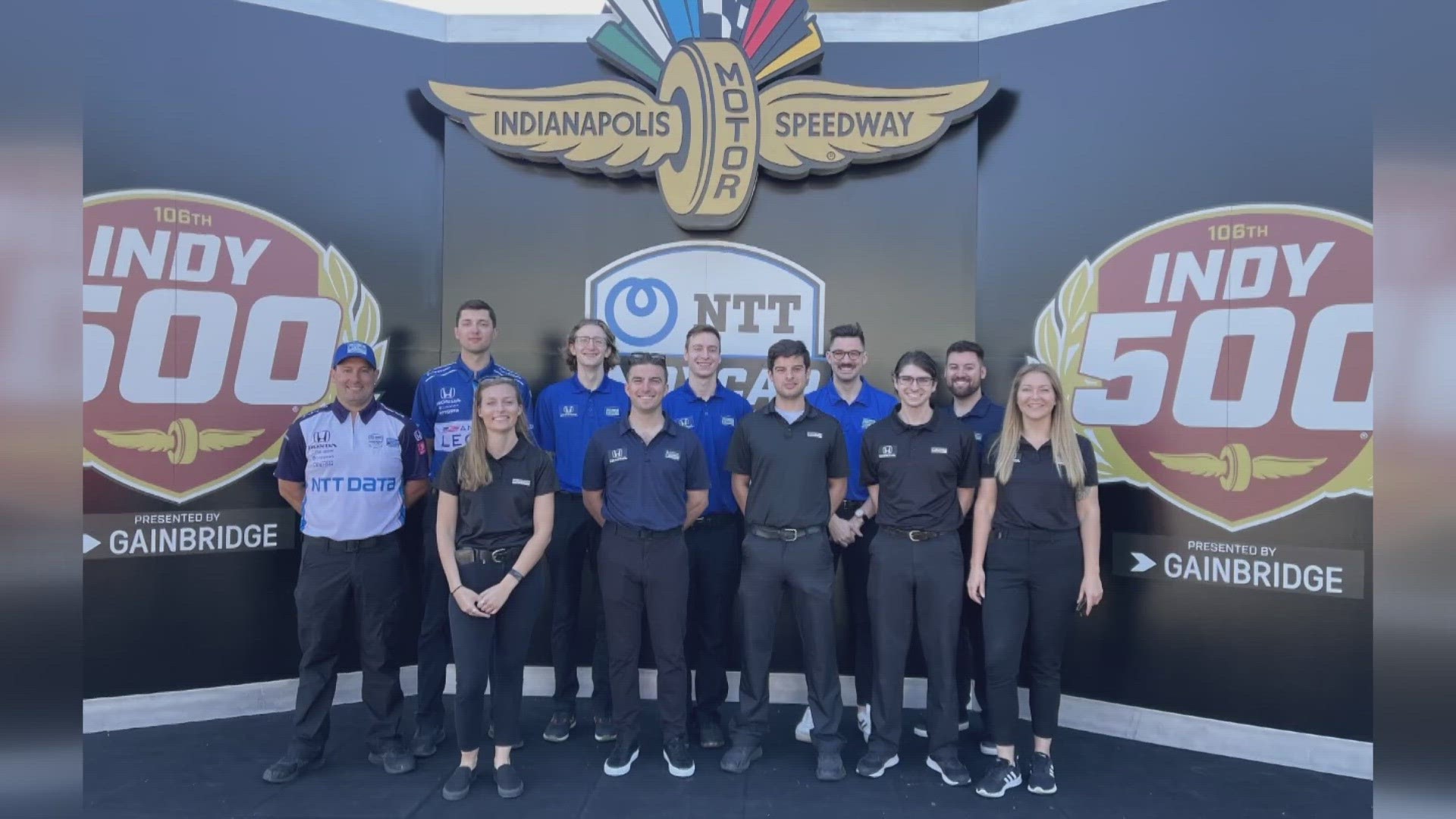INDIANAPOLIS — When you come to the Indianapolis Motor Speedway, there's really nothing like it.
From the sounds of the cars to the scene from the stands, you just take it all in. There's so much more than just the drivers, though. So much behind the scenes goes into making sure the car is ready for racing. The main pipeline for the bright minds who end up as IndyCar engineers is right down the road.
You see the cars on the racetrack, but it starts at Purdue University in Indianapolis – Purdue's portion of what was formerly IUPUI – and its undergraduate motorsports engineering program. It's the only of its kind in the entire country.
"We are starting to burst at the seams," program director Chris Finch said. "We are starting to get more and more interest in the program."
Finch, who worked as a race engineer in IndyCar for nearly 20 years, now runs the program that serves as a pipeline to working in motorsports. Former students are now working for 32 of the 33 teams and drivers represented in the Indianapolis 500.
"We take the principles of core mechanical engineering ideas, but we also give them the opportunity to get their hands in the middle of it," Finch said. "That's what those race engineers do. They understand the engineer science, but they're applying it to the car to make it perform."
Take Josefine Eskildsen, for example, a 2023 graduate of the program is now systems engineer for Brian Herta Autosport.
"The way I explain it to people is I'm vitals (for) checking the car. I'm making sure that the car is running the way it is supposed to," Eskildsen said. "As systems engineers, we're in charge of all electronics on the car. So if there's some kind of wiring error or a short in a sensor, I'm going through it and diagnosing what's wrong trying to fix it. Then, during the race, we're in charge of the fuel strategy. So I'm telling Chris, 'Hey, here's when we should pit and here's how long the pit will take.'"
It's a vital position on any race team. Skills learned in the program apply directly to the most competitive series in motorsports. It's rewarding for students and fulfilling for Finch.
"I came into this program with barely any automotive experience," Eskildsen said. "I didn't have any major motorsports interest, but I heard about the program, and it sounded really cool. I just jumped into it. Now, everything I know, I learned from the program."
"They're achieving their dreams," Finch said with a smile. "They're working hard, they're being successful, and they're incredibly talented, which is just great."
It's a highly-successful program creating a pipeline in landing students jobs in IndyCar. Graduates are working in the Greatest Spectacle in Racing, which is right down the road.

